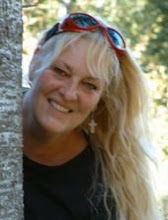Farm 'experiment' tests subsistence
Friday, August 28, 2009
By Diana Bowley of the BDN Staff: DEXTER, Maine - Fred Sherburne, 57, and his nephew Shawn Sherburne, 35, watched as honeybees flitted over the sea of golden yellow sunflowers that surrounded them, a crop both men hope will help their struggling multigeneration dairy farm survive.
The elder Sherburne, who operates Top of Maine Farms off the Ripley Road, planted about 18 acres in sunflowers this year — and much more of his approximately 400 acres in oats, wheat and corn — in an attempt to diversify and to help offset the loss from dropping organic milk prices.
"Diversification is the key to the whole [farm] thing," Fred Sherburne said Monday.
How well the experiment works will determine whether Shawn will continue the operation when Fred retires and whether Fred's own grandchildren will continue the tradition.
"Farmers in Maine have got to diversify in order to make it a viable operation for the next generation, and we're trying to do that, to make it viable for Shawn to continue on with the family farm," Fred Sherburne said.
Maine residents could do much to help struggling farmers by buying local.
"We've got to look closer to home and try not to buy [farm products] from so far away and try to keep our production and sales local," Sherburne said. "I don't see the small farmers making a living by sending our milk to Massachusetts and New York."
Right now Maine dairy farming is so troubled that conventional milk prices are where they were when Sherburne took over the farm in 1972, he said.
Sherburne said he sold his dairy herd in 2003 but struggled for two years trying to find out what he could do in life that he enjoyed as much. In the end, he decided farming was what he needed to do, so he returned to dairy farming in 2006. He also was aware that he had to make some crucial changes in order to keep his farm, which he has had to refinance twice.
Albion farmer Henry Perkins piqued Sherburne's interest in sunflowers. Perkins, who had been growing sunflowers for about two years, produces vegetable oil from the seeds, according to Sherburne. Perkins' success was enough to encourage Sherburne to purchase some of the seeds and begin his own effort. Using some of his own acreage and that of a friend's, Sherburne planted about 33,000 sunflower seeds per acre, and other than an application of manure and an attempt to keep the weeds at bay, he's done little else to care for the plants.
In a month or so, the brilliant sunflowers will be harvested. Sherburne plans to store the seeds for a while, then have Perkins press them to separate the oil from the meat. The oil will be used to fuel Top of Maine Farms and the farm's tractors, while the meat will be fed to his milking herd of 140. The stalks will be ground up for bedding so nothing is wasted, he said.
Sherburne expects the sunflowers to produce 40 to 80 gallons of oil per acre, which represents about one-third of the volume of oil he now uses on his farm. The meat from the seeds will represent about a third of his herd's supplemental protein.
"We are trying to be a biological farm in that we are using all natural [items]," Sherburne said. At the same time, "we could potentially furnish our energy needs here, both diesel and heating fuel."
The wheat planting is an experiment that is being conducted with help from the University of Maine Cooperative Extension, according to Sherburne. "It's an interesting experiment," he said.
Ten percent of the wheat harvested will be sold to a Skowhegan market for bread making and the remainder will be fed to his cattle. The stalks will be used for straw so as not to waste any part of the plant.
The oats will serve as cattle feed and bedding, according to Sherburne. As for the corn — well, Sherburne would rather not talk about that, he said with a curt laugh. The sunflowers, which rise about 5½ feet into the air, have far surpassed the size of the corn.
While the rainy summer has affected his crops, Sherburne is optimistic the harvest will be productive. "It's been a really tough [year] — there's been way too much rain initially," he said. The rain has resulted in crops below normal quality and yields that have been reduced considerably, he noted.
Sherburne, who works the same property that three generations before him worked, said planting new crops is a learning experience. "I think about alternative things all the time," he said. "This is an experiment, and we'll see how it works as to whether we want to expand it or give it up."
Looking back, Sherburne said if he had to do something different, it would have been to "pray a little more for better weather."
Eyeing his field of sunflowers, Sherburne said, "I like the look of sunflowers, so if nothing else, I knew they were going to be pretty."
"This content originally appeared as a copyrighted article in the Friday, August 28, 2009 edition of the Bangor Daily NEWS and is used here with permission."
Thursday, October 15, 2009
Farm 'experiment' tests subsistence
Posted by
Editor
at
1:47 PM
![]()
Subscribe to:
Post Comments (Atom)


No comments:
Post a Comment